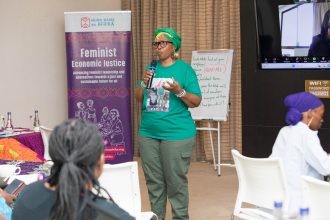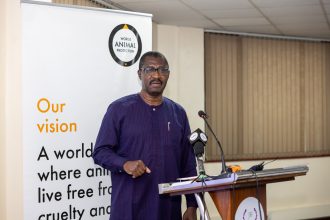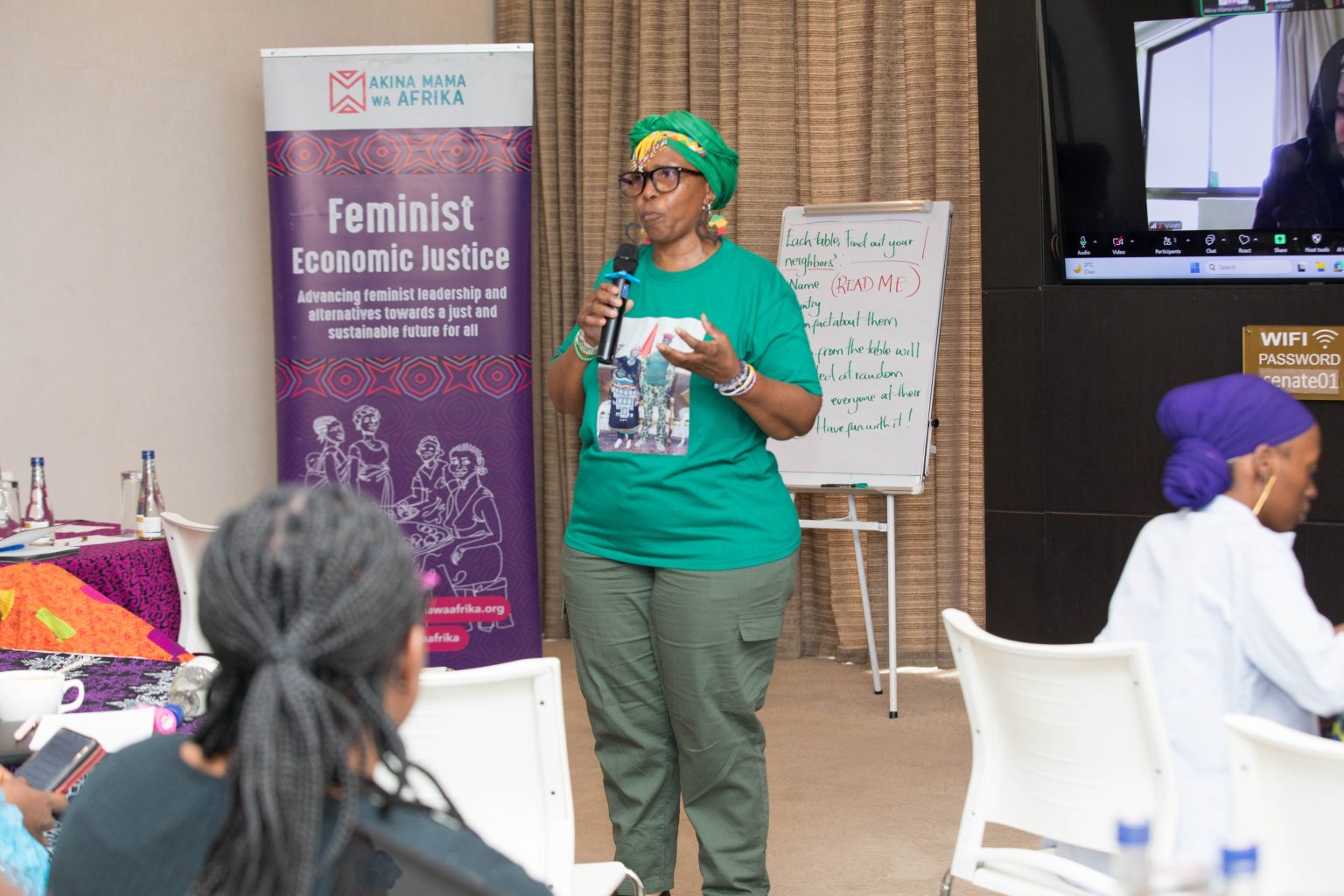By Lenah Bosibori
Nairobi, Kenya – African feminist groups and activists are calling for fairer economic policies that put people before profits. They want approaches that support social welfare, recognize unpaid care work, and ensure just taxation.
Speaking at a three-day workshop in Nairobi organized by Akina Mama wa Africa (AMwA) on regional consultation on the UN Tax Convention and Ending Austerity, Dr Khanyisile Litchfield-Tshabalala urged African governments to rethink fiscal strategies that place disproportionate burdens on women and the working poor.
“For too long, women have been told the same statements over and over. That is why we arrived at the point of respecting and restoring the dignity of social reproduction. And for us, it doesn’t end there.”
Dr Tshabalala who is also a South African Member of Parliament emphasized that neoliberal systems consistently undervalue women’s reproductive and care roles. “Neoliberalism has no respect for the bodies of women,” she said, pointing to rigid maternity leave policies, childcare challenges, and the double workload women face both at the office and at home.”
The workshop participants identified four key alternatives to austerity
Restoring the dignity of social reproduction was one of the four key alternatives identified to austerity. Dr Tshabalala argued that African societies once placed communal value on motherhood, childcare, and food production, but neoliberal economies punish women for bearing children and make no allowances for domestic realities.
“Bringing a child into the world is about intergenerational continuity. We should not punish women for that,” Dr. Tshabalala said.
In addition, recognition and compensation of unpaid care work was another alternative to austerity that was highly discussed. “Millions of African women carry the burden of cooking, cleaning, caring for children, the elderly, and even sick relatives without recognition or pay.” Dr Tshabalala stressed.
She further noted that this “invisible labor” leaves women physically and mentally exhausted, yet it remains unaccounted for in national budgets. “We should not even call it paid care work. First, it must be recognized as work,” she noted.
Rejecting austerity as the default economic solution, according to Dr Tshabalala, austerity measures such as cuts in health and education budgets target the poor while sparing corporations and the wealthy. She cited South Africa’s 2024–2025 budget shortfall as an example, where despite claims of a funding gap, government could have raised the missing revenue by ending tax rebates for private medical aid users. “Austerity is unnecessary. There are always alternatives, but governments choose the easy way of targeting the poor,” she argued.
Additionally, the workshop called for tougher measures against multinational corporations accused of tax avoidance and illicit financial flows (IFFs) by ensuring corporations pay their fair share.
Dr Tshabalala criticized the role of the Organization for Economic Co-operation and Development (OECD) in structuring global tax rules that favor Europe at Africa’s expense, allowing companies to shift profits to tax havens. “Even a grade one child knows British Petroleum has more money than their mother. Yet governments tax workers more than corporations,” she said.
The participants urged African nations to back the United Nations Tax Convention, which proposes a fairer global tax system based on equal country representation, rather than OECD frameworks.
Shabalala concluded by calling on the need for organizing, not just criticizing. “In Africa we moan, but we don’t organize. This workshop was about organizing. If we don’t want austerity and neoliberalism, then we must be clear about the future we want and build it together.”




